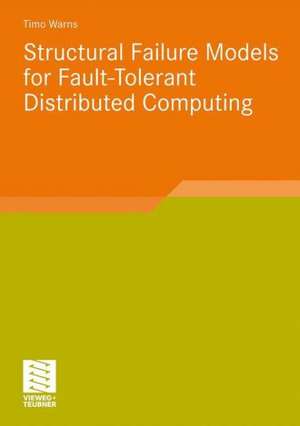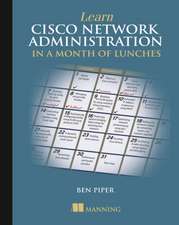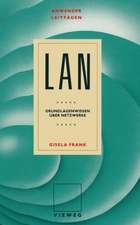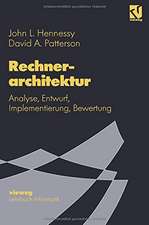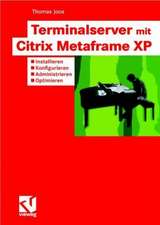Structural Failure Models for Fault-Tolerant Distributed Computing: Software Engineering Research
Autor Timo Warnsen Limba Engleză Paperback – 25 iun 2010
Preț: 640.69 lei
Preț vechi: 800.86 lei
-20% Nou
Puncte Express: 961
Preț estimativ în valută:
122.61€ • 127.85$ • 101.90£
122.61€ • 127.85$ • 101.90£
Carte tipărită la comandă
Livrare economică 20 martie-03 aprilie
Preluare comenzi: 021 569.72.76
Specificații
ISBN-13: 9783834812872
ISBN-10: 3834812870
Pagini: 234
Ilustrații: XV, 216 p. 23 illus.
Dimensiuni: 148 x 210 x 20 mm
Greutate: 0.29 kg
Ediția:2010
Editura: Vieweg+Teubner Verlag
Colecția Vieweg+Teubner Verlag
Seria Software Engineering Research
Locul publicării:Wiesbaden, Germany
ISBN-10: 3834812870
Pagini: 234
Ilustrații: XV, 216 p. 23 illus.
Dimensiuni: 148 x 210 x 20 mm
Greutate: 0.29 kg
Ediția:2010
Editura: Vieweg+Teubner Verlag
Colecția Vieweg+Teubner Verlag
Seria Software Engineering Research
Locul publicării:Wiesbaden, Germany
Public țintă
ResearchCuprins
Modelling Fault-Tolerant Distributed Systems.- Modelling Fault Assumptions with Structural Failure Models.- Constructing Coteries.- Reaching Consensus.- Conclusion and FutureWork.
Notă biografică
Dr. Timo Warns completed his doctoral thesis under the supervision of Prof. Dr. Wilhelm Hasselbring at the Carl von Ossietzky University of Oldenburg.
Textul de pe ultima copertă
Given that faults cannot be prevented in sufficiently complex systems, means of fault tolerance are essential for dependable distributed systems. Designing and evaluating fault-tolerant systems require well-conceived fault models. In the past, theoretical works have used simplified models that, while being tractable, turned out to be inaccurate. Practical works have used probabilistic fault models that, while being more accurate, often turned out to be intractable.
Timo Warns bridges the gap between theory and practice regarding fault models. He has developed tractable fault models that, while being non-probabilistic, are accurate for dependent and propagating faults. Using seminal problems such as consensus and constructing coteries, he demonstrates how the new models can be used to design and evaluate effective and efficient means of fault tolerance.
Timo Warns bridges the gap between theory and practice regarding fault models. He has developed tractable fault models that, while being non-probabilistic, are accurate for dependent and propagating faults. Using seminal problems such as consensus and constructing coteries, he demonstrates how the new models can be used to design and evaluate effective and efficient means of fault tolerance.
